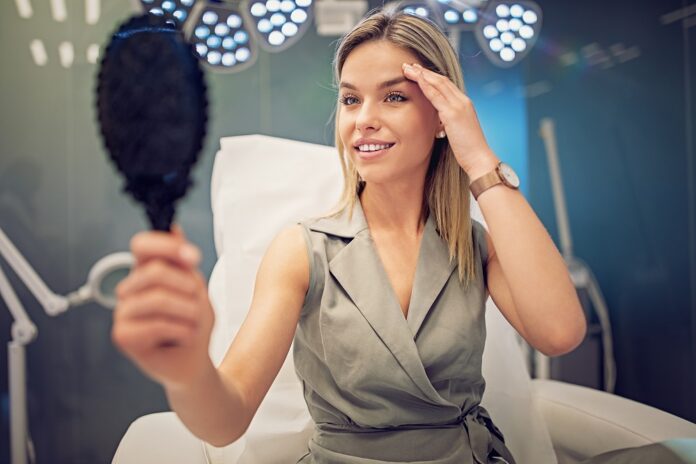The FDA is warning the public and healthcare professionals against the use of needleless devices for injecting dermal fillers, such as Hyaluron Pen, which are responsible for serious adverse events. — ETX Studio pic
PARIS, Oct 16 — The current trend on TikTok is far from being risk-free.
While some users of the social network are swearing by ‘homemade’ injections of hyaluronic acid and other fillers to plump up their lips, the Food and Drug Administration (FDA) is warning the public and health professionals alike against the use of needleless devices for injecting dermal fillers, such as the Hyaluron Pen, which have been responsible for serious side effects.
As we all know, social networks — TikTok in particular — are full of some wacky beauty tips that often go viral in just a few hours, to the delight of cosmetics fans of all kinds.
While the majority of these beauty tricks are more comical — and ineffective — than they are dangerous, others, on the other hand, are reckless and risky.
That’s the case with homemade injections intended to give volume to the lips, fight against signs of aging, or modify the shape of the nose.
Many users are purchasing needle-free devices, such as the Hyaluron Pen, to inject hyaluronic acid or other facial fillers at home, thereby exposing themselves to permanent damage.
Now the US FDA has issued an alert in response to the injuries observed following the use of these devices, which should only be handled by a handful of qualified health professionals, including surgeons and aesthetic physicians.
With problems related to the materials available online, the filling products — often accessible at ridiculously low prices on the internet, suggesting low-quality or worse — as well as the actual practice of injection, and even the lack of medical training in case of problems, the use of these devices by the public, especially at home appears to be plagued with serious issues.
“Today, the FDA is warning the public and health care professionals not to use needle-free devices such as hyaluron pens for injection of hyaluronic acid or other lip and facial fillers, collectively and commonly referred to as dermal fillers or fillers.
The FDA’s priority is protecting patients, who may not be aware of the serious adverse events that have been reported in connection with their use, such as permanent damage to the skin, lips and eyes,” warns the American agency.
Serious adverse effects
While the FDA is alerting the public to the simple fact that ‘touch-ups’ of these kinds, if botched, can deform their face, it is additionally reporting serious damage such as bruising, bleeding, scarring, infection, allergic reactions, fungus, and even, in extreme cases, adverse eye effects from these devices like the Hyaluron Pen that work through a system of pressure to get the fillers in.
To avoid risk, the FDA recommends not buying or using dermal fillers without going through a knowledgeable healthcare professional — and therefore not getting them online — but also not performing these types of injections at home.
“Patients and healthcare providers should know that FDA has not approved any dermal fillers for over-the-counter sale for at-home use or for use with needle-free injection devices. These unapproved needle-free devices and fillers are often sold directly to customers online, bypassing consultation with a licensed health care provider, a critical safety measure for patients to make informed decisions about their personal health,” the warning states.
And the warning comes at the right time as videos featuring such practices seem to be multiplying exponentially on social networks. The hashtag #hyaluronpen has accumulated no less than 65 million views on TikTok with a large number of videos dedicated to home injections. Many health professionals have already taken to the stage on the social network to alert users to the dangers associated with the practice. — ETX Studio


